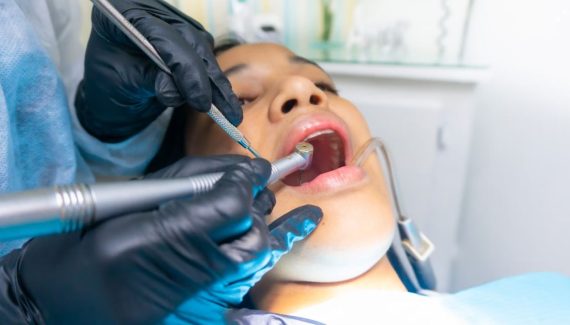A thyroid function test (TFT) is a series of blood tests used to identify or monitor various thyroid diseases. Your thyroid gland produces thyroid hormones (T3) and thyroxine (T4). These hormones aid in the regulation of body temperature, heart rate, growth, and weight. Thyroid-stimulating hormone (TSH) regulates thyroid hormone production by signaling the thyroid when to create thyroid hormones. The pituitary gland produces TSH.

TFT may be performed to measure your blood’s T3, T4, or TSH levels. Diagnosing them earlier is essential and can significantly impact the treatment plan. The best way is to know the thyroid test cost for Beter price with the best facilities and accurate results in the best diagnostic center near you.
Contents
What is the Purpose of TFT?
You may require a full thyroid function test if you have hyperthyroidism or hypothyroidism symptoms. In addition, this test could be used to determine how well your thyroid medication is functioning.
Hyperthyroidism is a condition characterized by excessive thyroid hormone levels. As a result, weight loss, sweating, a fast heartbeat, and difficulty sleeping can occur.
Hypothyroidism is a disorder that occurs when thyroid hormone levels are abnormally low. As a result, weight gain, weariness, sensitivity to colds, thinning hair, and depression can occur.
How Should I Prepare for the TFT?
The normal thyroid function test can be performed at any time of day. Certain medications can have an impact on the findings of your thyroid test. Ask your doctor if you should delay taking your medications until your blood is taken. On the test day, wear a short-sleeved or loose shirt. This will make removing your blood easier.
What Are Thyroid Function Tests (TFTs)?
TFTs are blood tests that determine the levels of thyroid hormones Health in your body. The following are the different TFTs:
- Thyroid-stimulating hormone test (TSH)
- Thyroxine test (T4)
- Test for triiodothyronine (T3)
Your doctor may also recommend testing for thyroid antibodies. Let us read in detail about what will help interpret thyroid function tests.
TSH Test:
The TSH test is the most used to diagnose thyroid disorders. This is because many believe that TSH is the hormone generated by the thyroid gland. But on the other hand, TSH is a hormone produced by the brain’s pituitary gland.
This hormone stimulates the thyroid gland to create T3 and T4 hormones. TSH, in a nutshell, ensures that thyroid hormones are released into the bloodstream as needed. To accomplish this, it detects thyroid hormone levels and stimulates the gland accordingly.
TSH Test Results:
TSH levels in adults should be between 0.5 and 4.0 mIu/L. When the level is higher, TSH encourages the thyroid to generate more T4 hormones. Levels greater than 4.5 mIu/L may suggest hypothyroidism.
T3 and T4 levels are likely to be elevated when the level is lower than normal. As a result, the body is attempting to lessen thyroid gland stimulation. Lower than 3.5 mIU/L levels may indicate hyperthyroidism.
T4 Test:
The thyroid gland’s main hormone is T4, also known as thyroxine. There are two types of T4 in the body:
- Bound T4
- Free T4
The body cannot use T4, which has been bound to proteins. The one that performs metabolic processes in the body is free T4.
More than 95% of the T4 in the body is bound. Only 5% is available for usage by the organs and tissues as free T4.
A complete T4 test determines both free and bound T4 levels. A free T4 test, on the other hand, solely evaluates the amount of free T4 in the blood.
T4 Test Results:
Normal values of total T4 in adults range from 5 to 12 micrograms per deciliter of blood. The typical range of free T4 levels in the blood is 0.8-1.8 (ng/dl). Anything outside of the normal range indicates a thyroid disease.
Hypothyroidism is characterized by high TSH levels and low free T4 and total T4 levels.
T3 Exams:
T3, or triiodothyronine hormone, accounts for just around 10% of thyroid hormone production. T3 is the active version of the hormone that the body requires. As a result, even T4 gets transformed into T3 to accomplish its functions.
T3 is available in two forms throughout the body:
- Bound T3
- Free T3
Bound T3 is bound to transport proteins, whereas free T3 is unbound and used by cells.
T3 Test Results:
Total T3 levels in the typical range are 75-195 ng/dl. The typical level of free T3 is between 0.2 and 0.5ng/dl.
A person may have hyperthyroidism if their TSH level is low, but their total T3 and free T3 levels are high.
Thyroid Antibody Testing:
Antibodies defend us against outside intruders and combat numerous diseases. Autoimmunity occurs when antibodies mistake your cells for foreign invaders and assault them. For example, Hashimoto’s thyroiditis or Grave’s disease occurs when thyroid antibodies react against thyroid cells.
Thyroid antibody tests determine whether the condition is caused by autoimmunity. This most commonly causes thyroid illness. For example, Hashimoto’s thyroiditis is an autoimmune type of hypothyroidism. Antibodies can also cause Grave’s disease, a kind of hyperthyroidism.
There are three types of thyroid antibodies in human bodies:
- TSH receptor antibodies
- Anti-thyroid peroxidase (TPO)
- Anti-thyroglobulin antibodies (TG)
See Also: Improve Your Thyroid Health in 6 Simple Steps
Final Words
The thyroid gland is a vital organ in your body that controls your energy, metabolism, and growth. Thyroid function tests can assess how well the thyroid gland is functioning. These best thyroid function tests can benefit persons with known thyroid issues and those experiencing new or unexplained symptoms. However, interpreting these results can be difficult. Your doctor can assist you in determining the significance of any abnormal thyroid function test results.
First, seek the best hospital near you for a private thyroid function test to measure your blood’s T3, T4, or TSH levels and immediately call them to know the thyroid test cost in Hyderabad or nearby. Then, consult your doctor for further treatment and follow a healthy diet.
You May Also Like:


